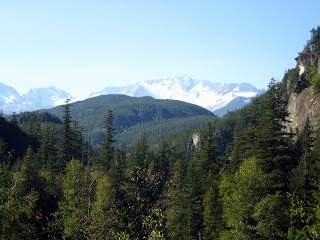
Many years ago, when I was a university student in the U.S., I had a Native American friend from the Shoshone tribe. Like me, he was getting a degree in Business Administration. We became good friends, and one year during Thanksgiving, he even took me up to an American Indian reservation where his family lived. I do not know of too many Asian Indians who have visited American Indian reservations. But that visit (or what I remember of it after so many years), will have to be the subject of another blog.
I was curious as to how Native American tribes viewed the American Gold Rush, the “discovery” of America and the West by people from Europe, and their view of American history. While talking about land ownership rights, my friend said something that has stayed with me all these years later: “Native Americans do not believe that people own the land they live on. Instead, we believe that the land owns us. We are only temporary custodians of the land we live on, and it is our responsibility to take care of it and nurture it for future generations”. I thought that this was one of the most profound things I had ever heard.
As a citizen of one of the most densely populated countries on earth, I have seen first-hand the devastation caused by overpopulation, greed and environmental degradation. Thirty years ago, Bombay (Mumbai) was still a scenic city, with the sea on one side and green, rolling hills on the other. The population of the city in the late 1970s was about eight million people. Today, thirty years on, all the open spaces are gone, filled with buildings or slums. The population has risen to twenty million people, though the infrastructure of the city (roads, public transport, electricity, water supply) was designed to cater to only about five million people. The beloved city of my youth is gone, forever.
When I go up to the Himalayas every year, I am distressed by the increasing vehicular pollution, the sprouting of ugly concrete houses on the hillsides, and the trash generated by uncaring tourists. It is infuriating to watch city tourists in their gas-guzzling sports utility vehicles defile the calm of the mountains, with their blaring Indi-pop music and their amazing capacity to generate mounds of garbage. The least they can do is to respect the sanctity of their beautiful surroundings, but I guess that is too much to ask for.
I usually head out into the wilderness very quickly to soothe my soul. The fewer the people I have to deal with, the better. Luckily, there is a growing awareness of the environment in India’s Himalayas, as locals also realize the economic value of conservation of trees, as well as the value of preserving and replenishing traditional sources of fresh water such as springs, etc. But India’s burgeoning population means that environmental conservation is always a challenging task, as the competition for finite sources of water and energy (such as firewood) intensifies with each passing year. There is much that the government can do in terms of environmental awareness and education, but then there is much that the government can do in all spheres of public life which sadly isn’t being done.
The Native American tribes were among the world’s first environmentalists because they revered the land they lived on, and took care of it. They learned to live in harmony with nature. There is much that we could learn from them. In this day and age, as global warming and climate change begins to manifest itself, there are simple things we could do to stave off a catastrophe. Plant and care for trees where possible, use public transportation where safe, clean and efficient public transportation options are available, judiciously use electricity and water – to name a few. If we don’t, the land we live on will continue to exist (in some form), while we will become extinct as a species. The pertinent question to be asked therefore is not are you an environmentalist, but are you an environmentalist yet? Because if you do not care for the land you live on, pretty soon it will not care about you. And that would be the end of the world as we know it.

1 comment:
Please visit my blog http://rummuser.com/?p=2008
"Magpie11 had this to say on his facebook page -”Chief Sitting Bull said,” Let us put our minds together and see what life we can make for our children.” What happened to that idea?”
I responded -”All our Chiefs have instead become shitting bulls.”
Magpie will have his last word -”For the first time ever I will use internetese…LOL!”
That was in a different context, but the same can be used to talk about the environment also. Not only the native American people, all tribals everywhere revere nature and will not harm it. Modern lifestyles destroy for short term gratification.
I am hundred percent with you in your angst, but am also glad that perhaps I will miss the impact that your generation will see.
Post a Comment